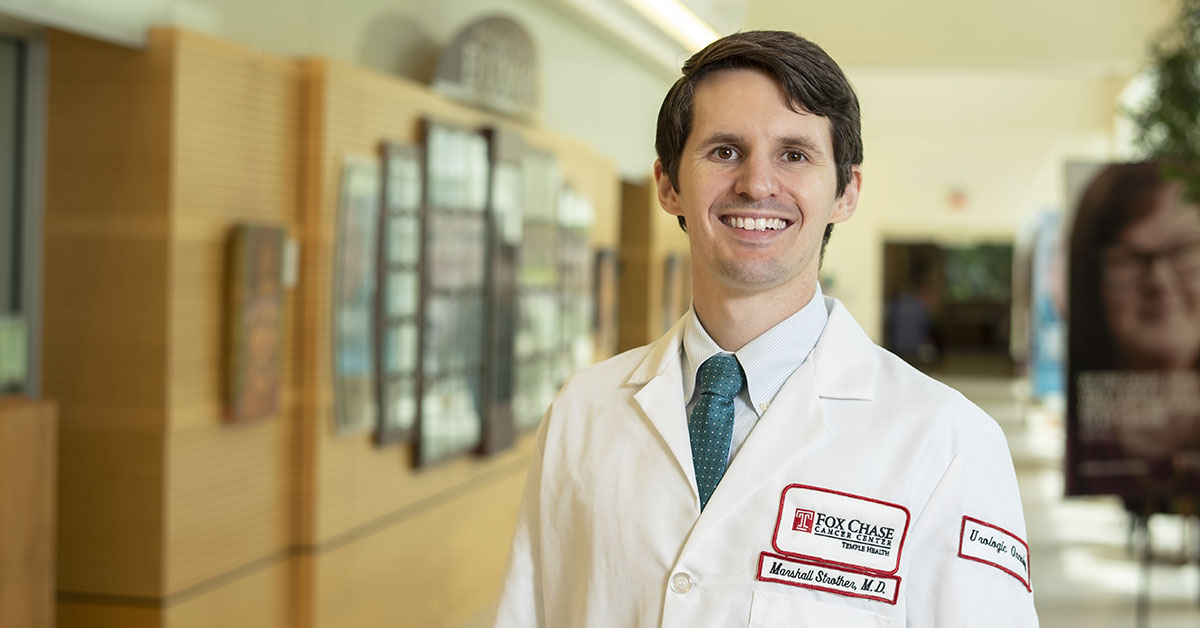
PHILADELPHIA (June 22, 2021)—A new study by researchers at Fox Chase Cancer Center found that patients with muscle-invasive bladder cancer can safely receive chemotherapy, even when their tumors are blocking their kidneys. The findings mean that patients with the most serious form of this common cancer can receive potentially life-extending treatment, usually without the need for additional invasive procedures.
“What this shows is that in many cases you don’t need to unblock the kidneys before giving chemotherapy,” said Marshall C. Strother, MD, a urologic oncology fellow at Fox Chase and lead author on the study. “This will hopefully save a lot of patients some unnecessary procedures down the road.”
Inserting a stent to unblock the kidneys is not only invasive, it can also raise the risk of additional problems, and there is some indication that it could increase the risk of the cancer recurring, Strother said.
About one in three patients with invasive bladder cancer end up with the tumor blocking one of the kidneys, raising concerns about their body’s ability to tolerate the powerful chemicals used for chemotherapy. Until now, there has been little guidance for how to treat these patients, and the approach varies from oncologist to oncologist.
Strother explored the issue with Daniel M. Geynisman, MD, associate professor in the Department of Hematology/Oncology, Alexander Kutikov, MD, FACS, chief of the Division of Urology and Urologic Oncology, and other colleagues at Fox Chase. They studied a database of 277 muscle-invasive bladder cancer patients who received the chemotherapy drug cisplatin prior to undergoing surgery.
Of the 193 patients included in the study, some had no kidney blockage, some had a blockage that was removed prior to chemotherapy, and some went through chemotherapy without having the blockage removed. The results showed that there was no significant difference between the three groups in their ability to tolerate chemotherapy.
“These patients can get chemotherapy, for sure,” Strother said. “And actually, as it turns out, the chemotherapy itself does a pretty good job of killing off cancer cells so that the kidney becomes unblocked.”
The findings are encouraging because if a patient’s cancer has progressed to the point where it is blocking a kidney, it’s an indication that the cancer is more aggressive. These are precisely the patients who could benefit most from receiving chemotherapy prior to surgery, Strother said.
Kidney blockage is a common problem with a variety of cancers, so the findings could be relevant beyond bladder cancer, the ninth most common cancer in the world, he noted. Muscle-invasive bladder cancer makes up about a quarter of bladder cancer cases and is more deadly, with about a 50% five-year survival rate. Giving these patient chemotherapy prior to surgery has shown to significantly improve survival rates.
The study, “Safety of Neoadjuvant Chemotherapy in Patients With Muscle-Invasive Bladder Cancer and Malignant Ureteric Obstruction,” was published in BJU International.